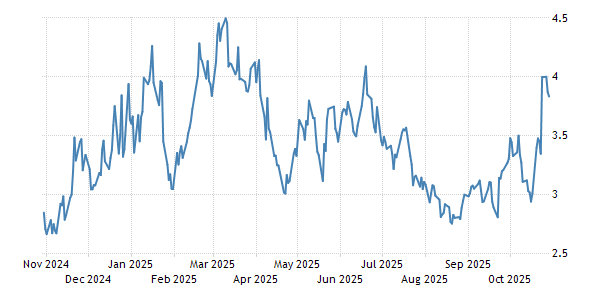The US crude stocks have gone up in an unprecedented way during the past week, defying the estimates of the seasoned analysts, leaving the crude oil markets in a state of confusion, at best and a state of panic at worst.
On Tuesday, the API, American Petroleum Institute, released its weekly data that pointed to a massive US crude build of over 10 million barrels. On Wednesday, meanwhile, the EIA, US Energy Information Administration, released its own data for the same period, showing an even bigger build of over 16 million barrels. Understandably, the unexpected development has left both analysts and investors in an anxious lurch, being exposed to the thermals of global political chaos.
Up until recently, the US crude stocks have been a reliable factor indicating the global demand of the commodity; since the US still is the largest consumer - and the largest producer in the world too - it made perfect sense.
Since the outbreak of war in Ukraine, however, its influence has been eclipsed to a certain extent by the prices of LNG, liquified natural gas.
As the West tightened the sanctions against Russia, along with the banning of imports of oil and gas, there was an understandable fear in the markets about potential shortages during cold, dark winter months ahead that ultimately resulted in an exponential increase in gas prices.
In September in 2022, the price of LNG went above $9.00, pushing many sectors against the wall.
When the prices of gas went through the roof, many industrialists were forced to enter into cost-cutting mode; they just chose the cheaper option, by turning to oil as a substitute, which in turn pushed the oil prices up.
As the winter approached, the EU wanted its member nations to maintain the storage above 80% that required the latter to take measures to address the issue as a matter of urgency. The EU members managed to achieve the goal by turning to various sources - before the winter set in; the feared winter blackouts never took place.
As the concerns over the energy shortages eased in Europe, the price of LNG started coming down steeply; it has come down by over 77% since its peak in September, last year and the downward trend seems to be continuing unabated. As far as gas markets are concerned, it can only get worse, when Europe and North America come out of winter.
The steady US crude build in January and February in 2023 implies that the demand is falling in proportion to the negative sentiments over the state of global economy. The fact that the two greatest economies on the planet are at loggerheads, hardly helps in combating the lingering anxiety among investors; in this context, it almost beggars belief that one of them can prosper at the expense of the other.
Due to the the growing chasm of mutual distrust between the US and China, analysts fear that the Chinese economy will be affected in the long run; in the short run, the Chinese economy shows the signs of recovery, though.
The recent Chinese Spring Festival has boosted the moral of the Chinse public, judging by the number of trips that the inhabitants of the country have made. It has not pushed the price of crude oil substantially, though.
The US, meanwhile, is considering the continuation of the release of oil from its SPR, Strategic Petroleum Reserve - once again, despite the latter being at a level of historic low; the volume is said to be 26 million barrels.
The release of oil from the SPR had some impact on the price of crude oil in the global markets, although producers hated it. Having failed to encourage the members of the OPEC to release more oil, the Biden administration, went for the nuclear option - tapping the SPR to increase the supply in the markets; it did have an impact on the price of crude oil, indeed.
All in all, the price of crude oil is not going to increase exponentially any time soon, unless the world's top economies revive their growth.
If the price of natural gas keeps falling at this rate, however, the energy markets will be in unchartered waters - unless, the war in Ukraine takes a turn for the worse.









